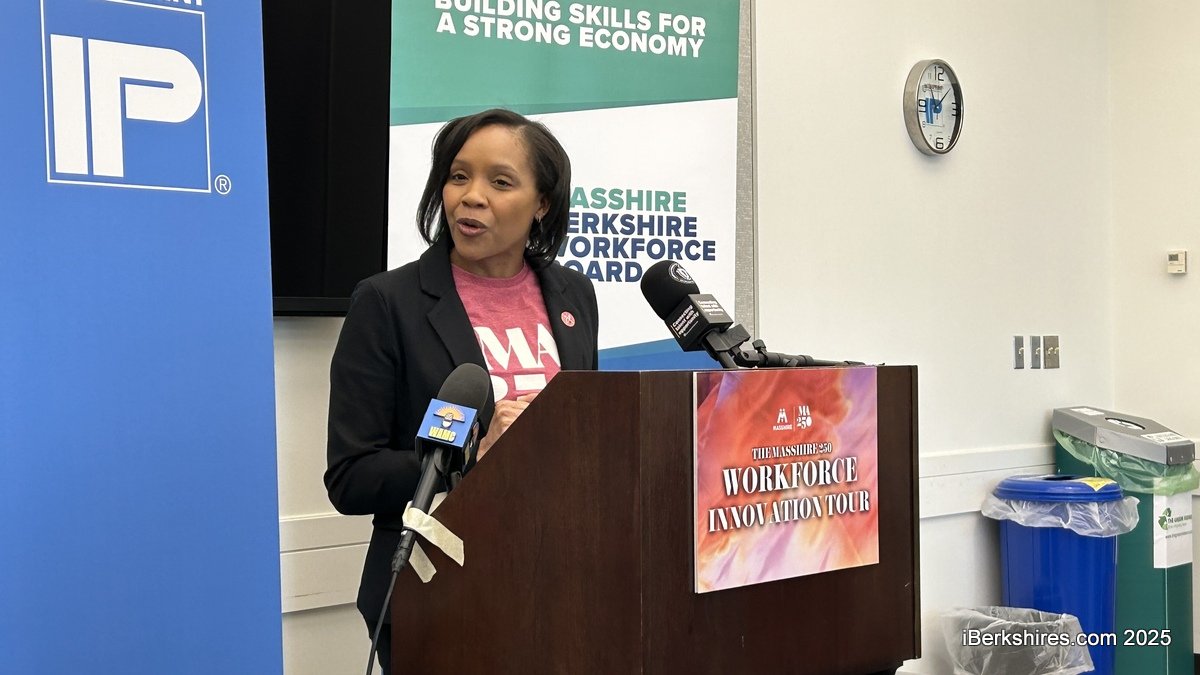DALTON, Mass. — Central Berkshire Regional School District is referring a draft of a new regional agreement to its lawyers to ensure clarity.
The School Committee meeting was presented the draft on Thursday by Todd Emerson, chair of the Regional Agreement Amendment Ad Hoc Committee.
The ad hoc committee has been working on the draft for the past year and received aid from Massachusetts Association of Regional Schools consultant Stephan Hemman. MARS serves as a consultant to aid districts in creating regional agreements between towns.
The draft was worked on by representatives from all the town's involved, not just School Committee members.
The latest draft revises a lot of the language from the 2008 version of the agreement and incorporates information to satisfy the state Department of Elementary and Secondary Education.
"There's information there that was put in only to satisfy DESE because DESE really didn't exist when the original was written. So, there are a lot of good things that happened in what we have in front of us," School Committee member Richard Lacatell said.
Amendments also included in the draft are the capital costs to towns when a school is under renovation or significant repair, other post-employment benefits, and the withdrawal process, he said.
The draft addresses issues that they have been negotiating with the towns for a while including an "applicable" approach to approving capital projects, Lacatell said.
The ad hoc committee also added a "roundtable meeting" in February to give member towns an opportunity to discuss the budget prior to the public hearing to give an idea of what's coming, Hemman said.
However, Lacatell said there are other issues that could have been debated and addressed to make the School Committee more efficient and responsive, and made the assessments to towns more fair, but in many cases those were not brought up.
The current draft represents a "small bite instead of a large bite that would be far more controversial," he said. So, it's understandable why these issues were not brought up.
He also had concerns regarding some of the language, referring to some sections as unclear and contradictory and noted that the agreement has "errors" in it that need to be addressed.
This agreement is going to be utilized for a number of years so it should be a "perfect" document, Lacatell said. "While I don't agree with all the decisions the ad hoc committee made, I'm not suggesting we overrule them, I know it took a long time to do whatever was done. I just think it should be made as good as we can make it and it's significantly short on proofreading."
He referenced the Section 11 that states any money the district receives for "payment of funded indebtedness" and its share of OPEB costs shall only be used for such purpose or deposited in a Massachusetts bank or trust.
"I think that we don't always keep all our money with Massachusetts banks. I mean, there used to be a state repository for funds that we could get very good earnings. We're talking potential millions of dollars here. I think it's important where we can leave the money," Lacatell said
He also said the section regarding a public hearing for the budget, and how often the regional agreement is reviewed is unclear and referenced Section 2 as an example, explaining that the requirement to fill a committee vacancies within three weeks of the posting date is "unreasonable."
Another committee member questioned the transportation section of the agreement because it does not include the preschools, rather it only refers to providing transportation to district students enrolled in kindergarten through Grade 12.
The reason for this is because the preschools are tuition based, Emerson said.
Although the agreement does not include transportation for preschools that does not mean the district can not find a way to provide transportation for the preschools in the future, Superintendent Leslie Blake-Davis said.
There are families that are in need of transportation, especially those farther out in the Becket and Cummington areas, so that is on the district's radar, she said.
Lacatell said it is not his intention to delay this; he just wants everything to be correct before it goes to the towns.
Hemman recommended that the committee send the draft to the district counsel to address some of the language concerns that Lacatell brought up and then hold another meeting at which the School Committee and ad hoc committee can work together and revise the draft.
Once that is complete, the district should send the agreement to town counsel for all its member towns, he said. From there, it will go to the Department of Education for approval before it can be presented at town meetings.
The committees will likely have to get together again to make additional changes based on the feedback they receive, he said, and added that the School Committee might want to hold some informational meetings before going to town meetings.
| If you would like to contribute information on this article, contact us at info@iberkshires.com. |
















